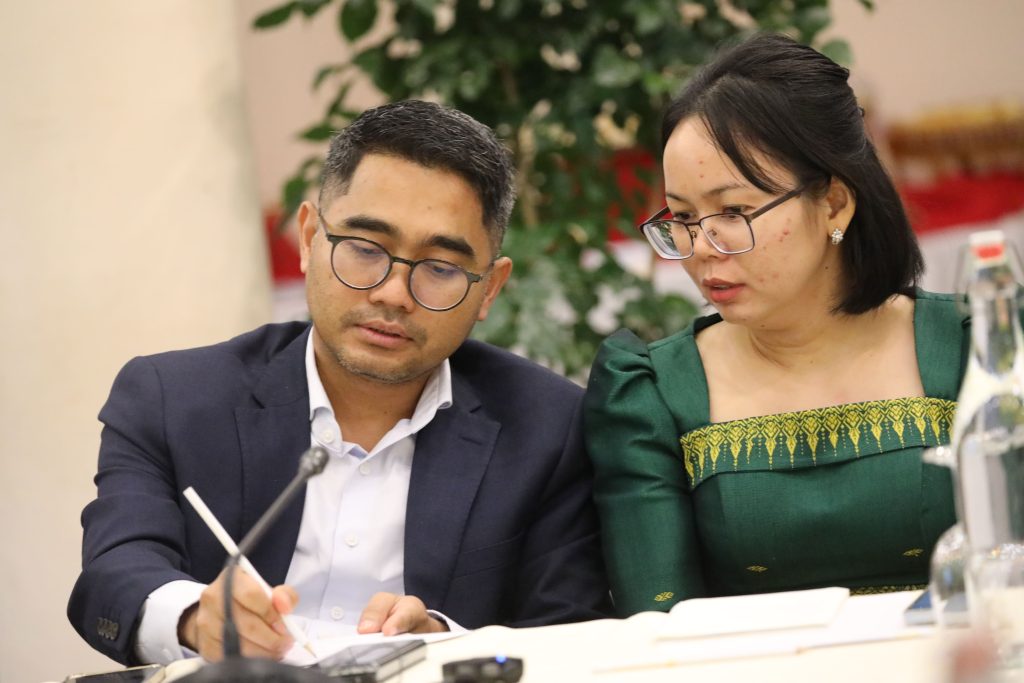
The global burden of cancer weighs heavier with each year. The data speaks for itself: over the last two decades, the number of people diagnosed with the disease has virtually doubled, from around 10 million in 2000 to 19.3 million in 2020. To put that in context, one in five people around the world will develop the disease over the coming decades. The cancer death rate has also increased, from 6.2 million people in 2000 to 10 million in 2020: more than one out of every six deaths is now due to cancer.
At the same time, late diagnosis and lack of access to treatment, exacerbated by the COVID-19 pandemic, impacts the poor outcomes of breast cancer patients. This is particularly severe in low- and middle-income countries (LMICs). In addition to having to cope with the disruption of services, people living with cancer are also at higher risk of severe COVID-19 illness and death.
And looming large in this worrying picture is breast cancer, which has now overtaken lung cancer as the world’s most commonly diagnosed cancer.
The WHO and the cancer community are responding with renewed urgency to address breast cancer and the strain it puts on individuals, communities and health systems.
On February 4, World Cancer Day, the WHO hosted the first of a series of consultations to set up the Global Breast Cancer Initiative. The message is simple: breast cancer patients can achieve better outcomes if diagnosed early and treated appropriately.
The C/Can approach to producing cancer management guidelines
C/Can has been working in nine cities in Europe, Asia, Latin America and Africa over the last four years. Being myself a strong defender of the patient’s right to be treated by a multidisciplinary team and also passionate about the resource stratification approach of guidelines for management of cancer patients, I was really pleased to learn that one of the most common challenges identified by local technical groups in C/Can cities was the lack of resource-appropriate guidelines for the management of patients with invasive cancer, and that this challenge has been established by the cities as a key priority.
Due to the lack of capacity in the cities (human resources, expertise, time availability, etc.), C/Can’s Technical Working Groups (TWGs) have decided not to embark on working in all cancer sites.
Instead, they are focusing on two cancer sites to acquire the know-how that will allow them to plan for other cancer sites. The decision included the selection criteria for cancer sites to start with: among those most common cancers, where treatment has the biggest impact on patient outcome.
All C/Can cities agreed to first address breast cancer, with cervical cancer usually the second option. Other priorities included colorectal and prostate cancer, as well as paediatric leukaemia.
The technical literature includes several evidence-based guidelines for the management of invasive cancer (NCCN, ESMO, ASCO, etc.) and the TWGs in all C/Can cities are familiar with them. These guidelines can be easily accessed via computers and mobile phones, for free. There are also recommendations from organisations such as ASCO, NCCN, BHGI on resource-stratified approaches to develop guidelines for some cancer sites.
Local experts in C/Can cities are aware of what to do, but making informed-decisions with the available resources is difficult.
In response, C/Can’s TWGs in Cali, Asuncion, Yangon and Kumasi carried out a review of available evidence-based guidelines, made recommendations based on resource-stratification approaches, and then started developing their own draft guidelines based on local needs and resources. They then organised a city consultancy process with cancer care specialists in their cities to produce a draft to be shared with external experts for international consultation.
During this process, C/Can supported the cities in collaboration with ASCO (one of our main partners). A panel of recognised experts in all disciplines of cancer care were nominated by C/Can partners such as ASCO, ASCP, IAEA, ISCCN and regional palliative care organisations/institutions.
These panels reviewed the draft guidelines, giving their opinions, suggestions and recommendations, then the city TWGs finalised the city guidelines, and deferred them to their City Executive Committee (CEC) for approval and submission to the corresponding authority for endorsement and implementation in all centres treating those cancer patients in the city.
As part of the international consultation and external review in Yangon, C/Can invited Benjamin O. Anderson, Director and chair of the Breast Health Global Initiative (BHGI), a program at the Seattle-based Fred Hutchinson Cancer Research Center, to do a comprehensive review of the city resource-appropriate breast cancer management guidelines before submitting it to the CEC.
During the process described above, an important gap was identified that applied for all the cities: there was no material to guide the TWGs on how to develop the resource-appropriate guidelines, organise the creative process, decide which sections should be considered and included, along with specific structure and contents.
To address these issues, C/Can requested again the collaboration of Dr Anderson to produce the C/Can-BHGI Guide for Developing Resource-appropriate Breast Cancer Management Guidelines. This guide is C/Can and BHGI’s contribution to the Global Breast Cancer Initiative to reduce deaths from breast cancer by ensuring access to quality care. The experts who have reviewed the guide agree it will be a great help in improving the quality of breast cancer guidelines.
The World Health Organisation will be launching the Global Breast Cancer Initiative (GBCI) on 8 March 2021.
Rolando Camacho, MD
Global Technical Lead
City Cancer Challenge
This article was originally published by City Cancer Challenge’s Global Technical Lead, Rolando Camacho-Rodriguez, on LinkedIn.





